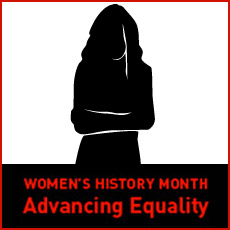
Last week, the White House Council on Women and Girls released a landmark report on the state of women in the U.S. that has been called the most comprehensive report of its kind in nearly five decades. Women in America: Indicators of Social and Economic Well Being compiles data from a variety of sources to show how women's lives are changing across the nation. The White House gathered statistics on a wide variety of topics, including health, education, employment and more.
The data show that women are making important progress in education and employment. According to the report, women are now more likely than men to earn a college degree and more likely to continue on to graduate school as well. Additionally, women's labor force participation is holding steady at the highest rate ever, and their earnings make up a growing share of household incomes.
Unfortunately, these encouraging advancements are tempered by discouraging news about pay equity. The report found that women still make far less money than their male counterparts, and still face higher rates of poverty. Overall, in 2009, women earned just 75 percent of what men did at all levels of education. And this striking disparity is affecting more families than ever. The report also tells us that the number of single female-headed households has increased, while these families continue to bring home the lowest combined household earnings of all family types. Women are also more likely to live in poverty than men, with African-American women and Latinas faring the worst. The report also shows a dismal economic outlook for single mothers — whose poverty rates are two to three times higher than the overall poverty rate. It is clear that serious obstacles continue to stand in the way of pay equality for women and their families.
Statistics like these have once again reaffirmed the importance of passing strong pay equity laws, like the Paycheck Fairness Act. First introduced over a decade ago, the Paycheck Fairness Act is intended to strengthen the Equal Pay Act of 1963's guarantee of equal pay for equal work. The Paycheck Fairness Act would do this by making several important changes. It would close a loophole in the law by requiring employers to justify wage differences between employees on legitimate reasons other than sex. It would also prohibit retaliation against employees who ask questions about their employer's wage practices or discuss their wages with colleagues, and ensure that women who are discriminated against based on sex have access to the same remedies as those who are discriminated against based on race or national origin.
Today, 48 years after the Equal Pay Act was enacted, it is clear that we have fallen far short of its original guarantee of equal pay for equal work. Last week's report demonstrates that women cannot afford to live with this inequality any longer, and that passage of the Paycheck Fairness Act is more necessary than ever. When recently polled, 84 percent of American voters expressed support for a new law to create more avenues for women to receive fair wages.
Now, in the 112th Congress, Rep. Rosa DeLauro and Sen. Barbara Mikulski are poised to reintroduce the Paycheck Fairness Act. The ACLU applauds their leadership, and their unyielding dedication to passage of this important legislation. Their commitment underscores the fact that pay equity is a matter of basic fairness, and it is well past time that we make this fairness a reality for American women.
The administration's sweeping report shows that women have a lot to be proud of — they have made remarkable educational and labor force gains over the past decades. Unfortunately, since those gains have not yet translated into pay equity, the report also reminds us that we still have a great deal of work to do to ensure that American women bring home the pay they deserve.

